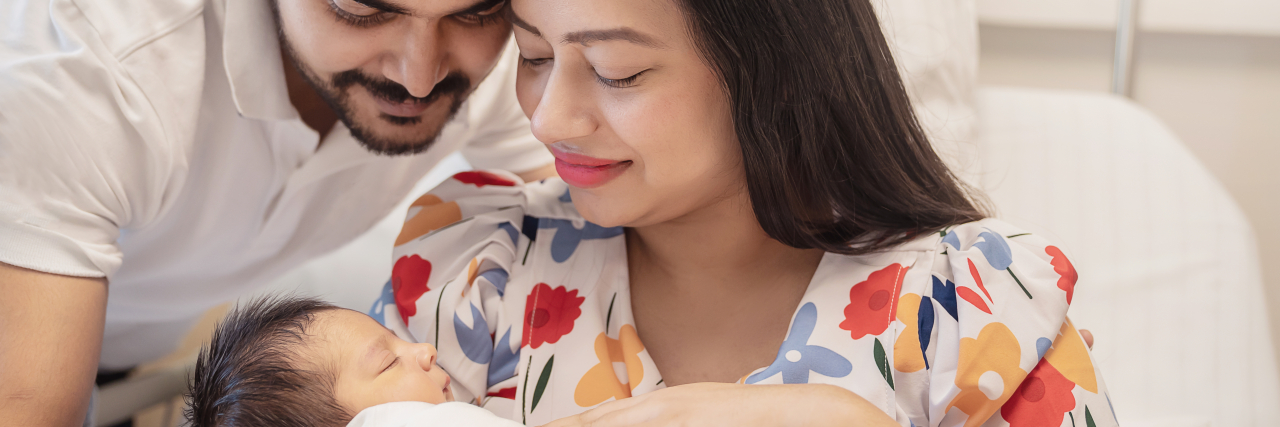What I Want New Parents to Know About Teaching Children About Disabilities
Dear new parents,
It’s so exciting to see new parents. They make me happy and teary-eyed. A child born and coming to our world. Watching children grow, say their first word, and show their talents. I love kids so much because they’re often full of life and pure innocence and are usually eager to learn.

I’m an autistic, neurodiverse person. If you have kids, please teach your children to make friends with other kids with disabilities. Neurodiverse kids are often bullied, ostracized, and forgotten — but they shouldn’t be. Inclusion and acceptance are so important.
Bullying hits so hard for me and others in the disability community because we often become the targets of bullies. If we don’t teach kids about neurodiversity, those kids might end up becoming bullies as they get older — in adolescence and even adulthood. Sometimes, parents pull their kids away when their children want to say “hi” to someone living with a disability, but letting kids say “hi” to people with disabilities can teach them that disability isn’t something scary.
Neurodiversity is a spectrum. For example, some people may have Down syndrome, Apert syndrome, cerebral palsy, or be autistic. When parents hush their children as they get older, the kids might not know about disabilities when they get older. According to Stop Bullying, “Children with disabilities—such as physical, developmental, intellectual, emotional, and sensory disabilities—are at an increased risk of being bullied.” Their challenges increase the risk that they’ll be bullied.
It’s very nice to see our world slowly becoming more accepting. It is absolutely amazing to see this happening, and I’m very grateful for it — but there’s still room to improve. Kids with disabilities may be ostracized in social groups, gym, or recess.
As an autistic person, I was ostracized in high school in different school periods. Gym, social studies, science, and music were tough. I remembered I went through a lot of anxiety. Transferring to a mainstream school program from the special education class was hard because the expectations are usually different. Special education may give more help from support workers. Mainstreaming often puts you on your own, and the work can be hectic.
The most intimidating part of being mainstreamed was being the only person with a disability in a room full of neurotypical kids. The environment was hard. It’s overwhelming too. That’s why it’s important to teach neurotypical kids about neurodiversity — especially in school. Life is beautiful because people are different. Some kids may not hear, speak, or walk and that’s OK too. It’s never too early to teach your children about neurodiversity, acceptance, and kindness. Kids rarely judge and are always eager to learn.
Some neurodiverse people struggle with big groups of people, so we need spaces to be accessible so that kids with all abilities can play together. There is nothing wrong with being an introvert and needing solitude, though. It’s OK for neurodiverse people to take a break from enormous crowds.
However, living with neurodiversity often means getting excluded from society, ignored, shunned, or forgotten. Loneliness can be a slow, painful emotion. The reason people with disabilities go through loneliness is often judgment. Isolation may make them hide from others because of discrimination and teasing. Many people with disabilities don’t want to feel isolated. The problem is there’s a lack of accessibility if they need help. Some people aren’t willing to understand why people with disabilities have a hard time adjusting to life changes. Some people with disabilities don’t get invited to gatherings — like birthday parties, prom, go-karting, or movie night.
Neurotypical families should be encouraged to teach their children about accepting and including neurodiverse friends. I encourage parents to watch documentaries and read books about disability. Films like “Wonder” and “This Is Vanity” discuss inclusion and why it’s so important.
It’s OK for your child to be curious about disabilities and ask questions. However, everyone still has boundaries. Keep in mind we should respect other people’s choices, their bodies, their choices, and their minds. Nobody should be forced to answer questions they don’t want to talk about.
My dream is to see kids become friends with people with disabilities. Parents, please teach your children to be friends with us. It takes patience, empathy, and compassion. I understand it might be a challenge for you, but it’ll help your child be more accepting of people with disabilities in the future. New parents, remember to teach your children kindness — it means the world to me as an autistic person.
Internal image via contributor. Getty image by paulaphoto.

